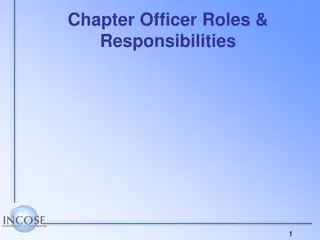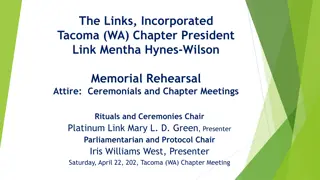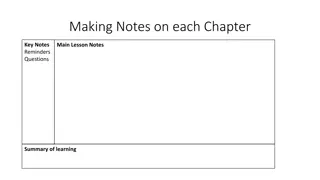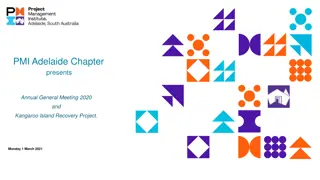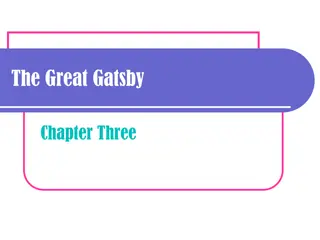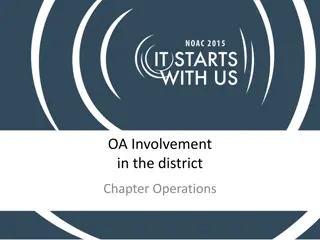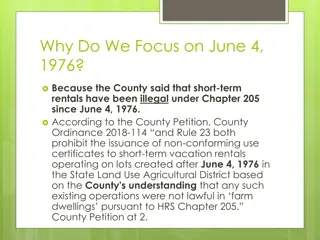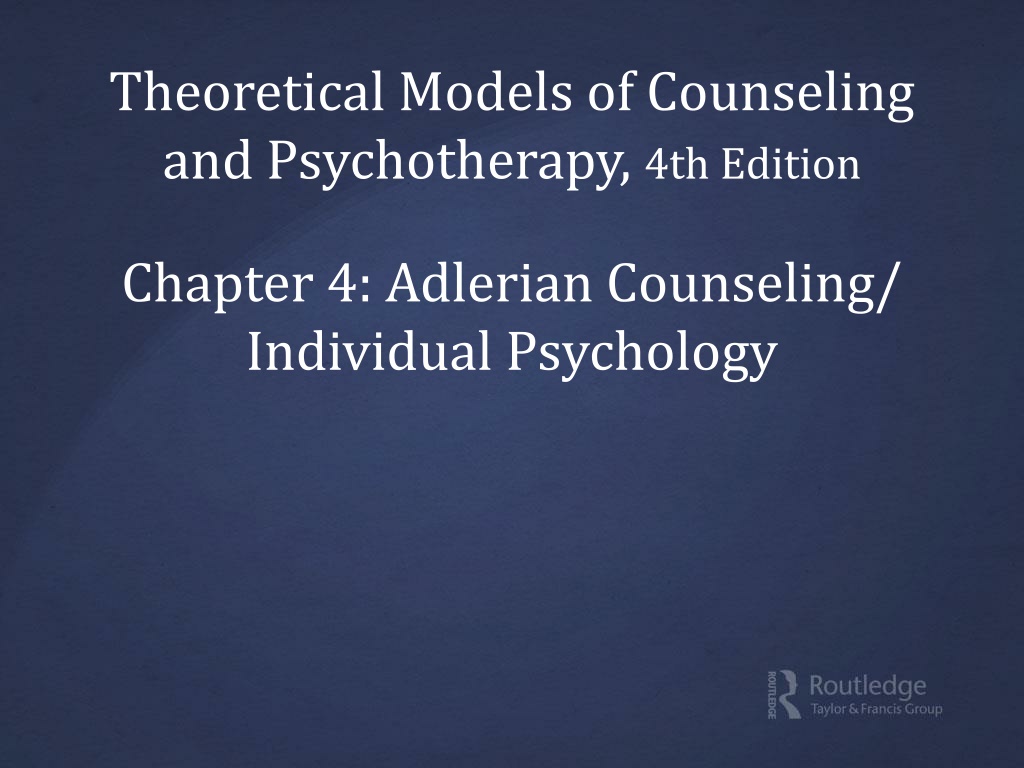
Adlerian Counseling and Individual Psychology Overview
Explore the historical overview, philosophical foundation, and personality development in Adlerian counseling and Individual Psychology. Understand Alfred Adler's contributions to therapy and his perspective on human nature, personality structure, and the role of the environment.
Download Presentation

Please find below an Image/Link to download the presentation.
The content on the website is provided AS IS for your information and personal use only. It may not be sold, licensed, or shared on other websites without obtaining consent from the author. If you encounter any issues during the download, it is possible that the publisher has removed the file from their server.
You are allowed to download the files provided on this website for personal or commercial use, subject to the condition that they are used lawfully. All files are the property of their respective owners.
The content on the website is provided AS IS for your information and personal use only. It may not be sold, licensed, or shared on other websites without obtaining consent from the author.
E N D
Presentation Transcript
Theoretical Models of Counseling and Psychotherapy, 4th Edition Chapter 4: Adlerian Counseling/ Individual Psychology
Historical Overview: Alfred Adler Born in Vienna, 1870; second of six children Encountered severe illness and early encounters with death First practice dealt with carnival artists and performers which contributed to his idea of organ inferiority and compensation Contemporary of Freud Served as medic during World War I Died in 1937
Philosophical Foundation Responsibility & Creativity Teleology Phenomenology Holism Social embeddedness
Personality Development Human Nature Function of psyche All humans are born inferior and immediately begin to move away from this feeling to a feeling of superiority (belonging, competence) Innate potential for social interest; connecting and collaborating with the world
Personality Development Human Nature Structure of psyche Lifestyle cognitive map expressed in thoughts, feelings, and actions Conclusions/convictions about Self Others Self-created goals Core (related to personality priority) Hidden Immediate (situational) The world
Personality Development Human Nature Structure of psyche Personality priority Superiority Self-control Control of others Pleasing Comfort
Personality Development Human Nature Tasks of Life: Love Work Friendship Self Spirituality
Personality Development Role of the Environment Family: One s first society Psychological atmosphere (perceived) Values Patterns of interaction Extent to which caretakers encourage development of social interest through: Example Instruction Psychological birth order (perceived) Extrafamilial influences
Model of Healthy and Unhealthy Behavior A healthy lifestyle is characterized by: Basic convictions in accordance with the common sense Relatively free of basic mistakes High in social interest Courage and ability to meet the life tasks of Work Friendship Love Self Spirituality Low in use of safeguarding mechanisms
Model of Healthy and Unhealthy Behavior An unhealthy lifestyle is characterized by: Basic convictions out of accordance with the common sense High in basic mistakes Overgeneralization False or impossible goals of security (the only if absurdity) Minimization or denial of one s worth Faulty values Misperceptions of life and life s demands Low in social interest
Model of Healthy and Unhealthy Behavior An unhealthy lifestyle is characterized by: Discouragement and difficulty meeting the life tasks High in safeguarding mechanisms Distancing Hesitating Detouring Narrowing the path
Personality Change Client s Role Motivation to seek counseling Capacity for change - related to courage to change Responsibility for change Sources of resistance Misalignment of goals Lack of openness to challenge or responsibility Unwilling to explore past and relate to present Safeguarding mechanisms
Personality Change Counselor s Role Counseling vs. psychotherapy Goal: Understanding basic mistakes turned into action to reorient basic convictions in the direction of the common sense (social interest) Roles Collaborator (in cooperative, egalitarian venture) Analyzer (of lifestyle, especially private logic and basic mistakes) Educator (about the common sense and social interest) Encourager (to modify basic convictions away from self-interest and toward common sense and social interest)
Personality Change Stages and Techniques 1. Relationship establishment Empathy ( See with the client s eyes; hear with the client s ears -- Alfred Adler) basic counseling skills of reflection and open-ended questions Genuineness Unconditional positive regard 2. Investigation of lifestyle to uncover basic convictions, especially mistakes: Explore client s perceptions of: Family atmosphere Birth order (psychological, not ordinal) Early recollections Personality priorities Dream analysis The Question
Personality Change Stages and Techniques 3. Understanding Counselor shares results of investigation with client Purpose: Client feels encouraged in basic convictions that conform to the common sense/social interest Client grasps basic mistakes and how they manifest in thoughts, feelings, and actions 4. Reorientation Purpose: Insight into Action counselor encourages client to turn understanding into action of modifying basic mistakes in direction of the common sense/social interest Advice Act as if (imagery, in vivo) Humor Homework intention Catching oneself Confront (point out discrepancies) Paradoxical Push button Spit in client s soup
Contributions and Limitations Contributions The concept of social interest paired healthy functioning with contributed to the greater good Emphasized positive potential instead of pathology Ideas based on common sense and have been incorporated into a wide range of current approaches Limitations Lacks a comprehensive theory of learning Needs more pure theory research on efficacy
Interface with Recent Developments in the Field Nature/nurture question: Acknowledgement of genetic dispositions but focus remains on subjective use of those biological elements. Likewise, it is not the person s family that determines outcome, but the individual s perception of those factors DSM-5 diagnosis: Focus on individual meaning and manifestation of symptoms. How is the client using the symptoms? Pharmacotherapy: Open to using it as a way to initially improve symptoms, then use other ways to gain health.
Interface with Recent Developments in the Field Managed care and brief therapy: The emphasis on the client progressing thought the stages and gaining insight which is moved into action. This does not necessarily need to be a lengthy process, but should be client determined/controlled. Technical eclecticism: Adler s concepts have been integrated into just about every other theory. As such, it is fairly easy to integrate other theories techniques and remain philosophically congruent. Effectiveness of psychotherapy: Research support exists but more is needed
Diversity The philosophical underpinning of phenomenology stresses the importance of understanding the client s perspective. Culture: Adler was a member of a persecuted minority group and his theory reflects the importance of understanding the client s experience of their cultural identity.
Gender and LGBTQ issues Adler and his colleagues were an early proponent of equality among genders. Although initially seen as unhealthy, same sex relationships have been affirmed within the theory in recent years. It is important to consider how these issues impact and form the client s style of life.
Spirituality Spirituality has often been included as a distinct life task Consider how the client is using the beliefs related to their religious/spiritual views Modern literature has explored and conceptualized this issue from many different faith groups
Current Status Institutes provides formal graduate level training throughout the world Professional organizations (NASAP) provide trainings and resource materials Journal of Individual Psychology dissimminates research
References Fall, K. A., Holden, J. M., & Marquis, A. (2023). Theoretical models of counseling and psychotherapy (4th ed.). Routledge.

